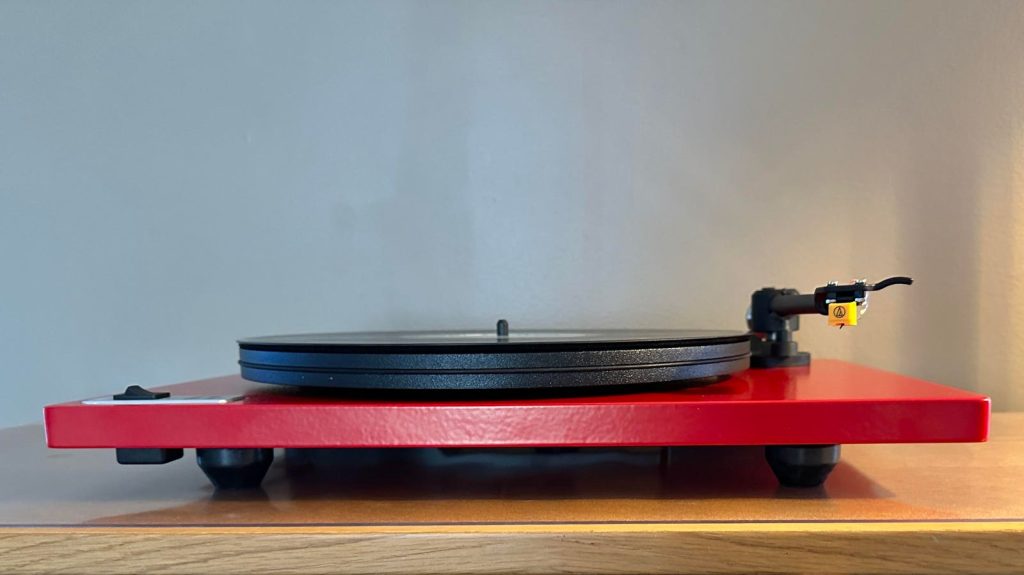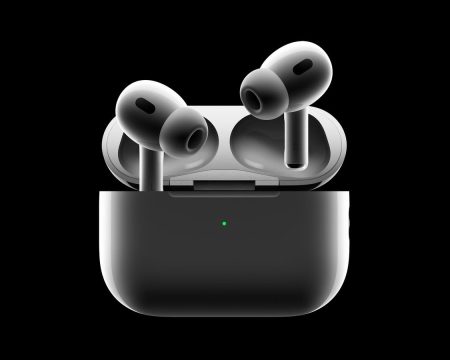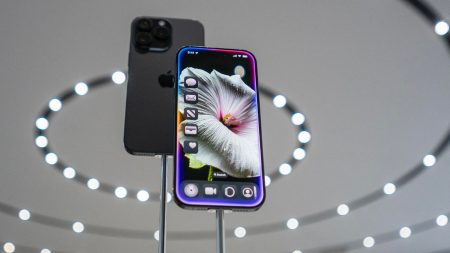With a seemingly never-ending surge in growth for vinyl record sales, turntables continue to be a hot commodity. One of the key markets is for entry level turntables, ideal for beginning record collectors, or those looking to move up a bit from something like a suitcase record player. U-Turn Audio’s updated Orbit lineup of turntables offers something for all levels of vinyl enthusiast, and the $249 Orbit Basic is its entry level, an inexpensive gateway to analog audio.
U-Turn Audio sent me one to try out, my first foray into this American audio brand with Kickstarter origins and a mission to offer vinyl fans high-quality turntables that leave them with money to buy records.
Easy Setup
One of the selling points of the Orbit Basic is its ease of setup. For those new to turntables or someone moving up from an all-in-one record player, the prospect of setting up a turntable can be very intimidating. Installing and aligning a cartridge, balancing a tonearm, setting the counterweight and anti-skate? You don’t need to worry about any of that with this turntable.
Out of the box, all you need to do is set the platter on the spindle, loop the belt around the platter and pulley, remove a twist tie securing the tonearm and snap the lid into the hinges. Even looping the belt is easier than usual, thanks to a grooved platter that helps to hold it in place.
Three things don’t quite align with the ease of use message, though.
First, this turntable uses a manual speed change system. Instead of pushing a button to change from 33 RPM to 45 RPM, you need to physically move the belt from one pulley to another. Not the end of the world–and some very well known turntables use this system–but it can be a pain, especially if you flip back and forth between LPs and singles frequently.
Second, there is no built-in preamplifier. Or I should say, one is available, but it costs extra. Without this, a buyer has to own either an external preamplifier (to connect to the AUX input of an audio system or portable speaker), or a receiver/amplifier with a PHONO input. Odds are that a vinyl beginner or someone moving up from a basic record player is not going to own either of these…
Third, the cue lever is also an optional, extra cost add-on. If you listen to entire album sides, having to manually “drop the needle” and raise it may not be a big concern. However, doing so makes it a little too easy to scratch a record or damage the stylus. This is actually the first turntable I’ve ever reviewed that didn’t come with a cue lever as standard equipment.
I should also mention the cover hinges. These are plastic and the inexpensive flexible type rather than true moving hinges. I wouldn’t expect them to last for long.
Orbit Basic Turntable Key Specs:
- 2 speed (manual change), belt-drive turntable
- MDF plinth in choice of 5 powder coat colors and option of two solid wood finishes (black walnut and white oak)
- Audio Technica AT91B conical diamond stylus MM cartridge
- OA3 magnesium precision gimbal tonearm with integrated headshell
- Preset, adjustable stainless steel counterweight
- Internal anti-skate
- MDF platter with groove
- Liquid silicone rubber drive belt
- Low-noise AC synchronous motor
- Self-lubricating polymer bearings with stainless steel shaft
- Rubber feet
- Hinged, clear plastic cover
- Options/upgrades include integrated pre-amplifier, real wood plinth, cue lever, acrylic platter, 45 adapter and Iso-Level feet
- 3-year limited warranty
- MSRP: starts at $249
How Does it Sound?
Even the base model of the Orbit Basic includes features that will elevate sound above what many other entry level turntables can deliver.
The platter is powder coated MDF. This is not quite as good as the more expensive acrylic, but MDF is still a dense and heavy material; it will do a far better job of reducing vibration and helping to maintain speed consistency (both will make your records sound better) than the thin stamped steel or even plastic platters commonly found on low-priced turntables and record players.
Orbit’s OA3 (Orbit Arm 3) is a one-piece arm tube, molded from magnesium to dampen vibrations. While many basic systems rely on no-name cartridges, the Orbit 3’s pre-mounted cartridge is an Audio Technica AT91B. One of Audio Technica’s most affordable cartridges, the AT91B is known for its channel separation and balanced output. You can also easily upgrade the sound by popping on a higher end stylus without having to replace the cartridge itself. The plinth is stylishly thin, but made of MDF instead of plastic. Once again the use of heavier, denser material pays off with reduced resonance. The feet are rubber (many are plastic), which adds a layer of protection against environmental vibration being picked up by the stylus.
How do records sound when played on the Orbit Basic? While the turntable itself is a big part of the sound equation, the other half is the system it’s played through. My review unit was equipped with the integrated preamplifier and I had a set of U-Turn’s ETHOS powered speakers to plug into.
The sound this setup produced when spinning records was quite pleasing. A conical stylus like the AT91B’s has a rounded tip so it can’t get into the fine grooves that an elliptical stylus can–it rides higher in the groove. The disadvantage of this is less high frequency detail, but it has real advantages as well, namely less noise from dust and micro scratches on the record. While the detail is noticeably lacking compared to the reference turntable in my office (equipped with a much more expensive Ortofon 2M Blue cartridge), sound was still bright with a strong bass presence. With used vinyl, the Orbit Basic’s setup actually sounded better in many cases, producing much less static and pops thanks to a cartridge that is more forgiving with less than perfect vinyl.
Move up to the Orbit Basic turntable connected to stereo output of some sort and you are going to enjoy a serious audio upgrade compared to a basic record player or all-in-one system. Your vinyl will sound the way it should.
Pair It With U-Turn’s Ethos Powered Speakers For a Compact System
A turntable like this is ideal for pairing with a pair of powered speakers for a compact, affordable and easy to set up audio system that makes the most of the record being played–with true stereo sound. U-Turn Audio has an option well worth considering in the Ethos powered speakers, which I used while testing the Orbit Basic turntable. Look for a standalone review of these speakers (which also support Bluetooth streaming) in an upcoming post.
Recommendation
At $249, the Orbit Basic is a pretty compelling entry level turntable–at least at first glance. It has an attractive design, a nice paint job, a decent cartridge, some premium components and there’s something to be said for being designed and assembled in the USA. However, that $249 price point leaves out two features that many shoppers for entry level turntables are going to be looking for: a cue lever and an integrated preamplifier. Add those in and the price tag is now $379. If you have 45s in your collection, a 45 adapter brings that to $391.
So here’s the issue: $249 for a quality entry level turntable is a good price. However, getting close to $400 (to include optional features that are standard on most competitors) means the Orbit Basic is now going head-to-head against mid-range offerings that are equipped with better cartridges and upgrades like acrylic platters. Orbit offers an upgrade in the $399 Orbit Plus (featuring an Ortofon OM5E cartridge with elliptical diamond stylus and an acrylic platter), but once again, both the preamplifier and cue lever cost extra…
The bottom line? If you’re shopping for a true entry level turntable and don’t care about a pre-amp, cue lever, or manual speed changes, then the Orbit Basic is well worth considering. It’s a quality product that’s well-built, looks good and sounds good. It will do the job very well. However, if you want the features that cost extra on the Orbit Basic, you should also check out mid-range turntables from brands like Fluance and Pro-Ject as well.
Disclosure: U-Turn Audio provided an Orbit Basic turntable for evaluation purposes but had no input into this review.
Read the full article here










